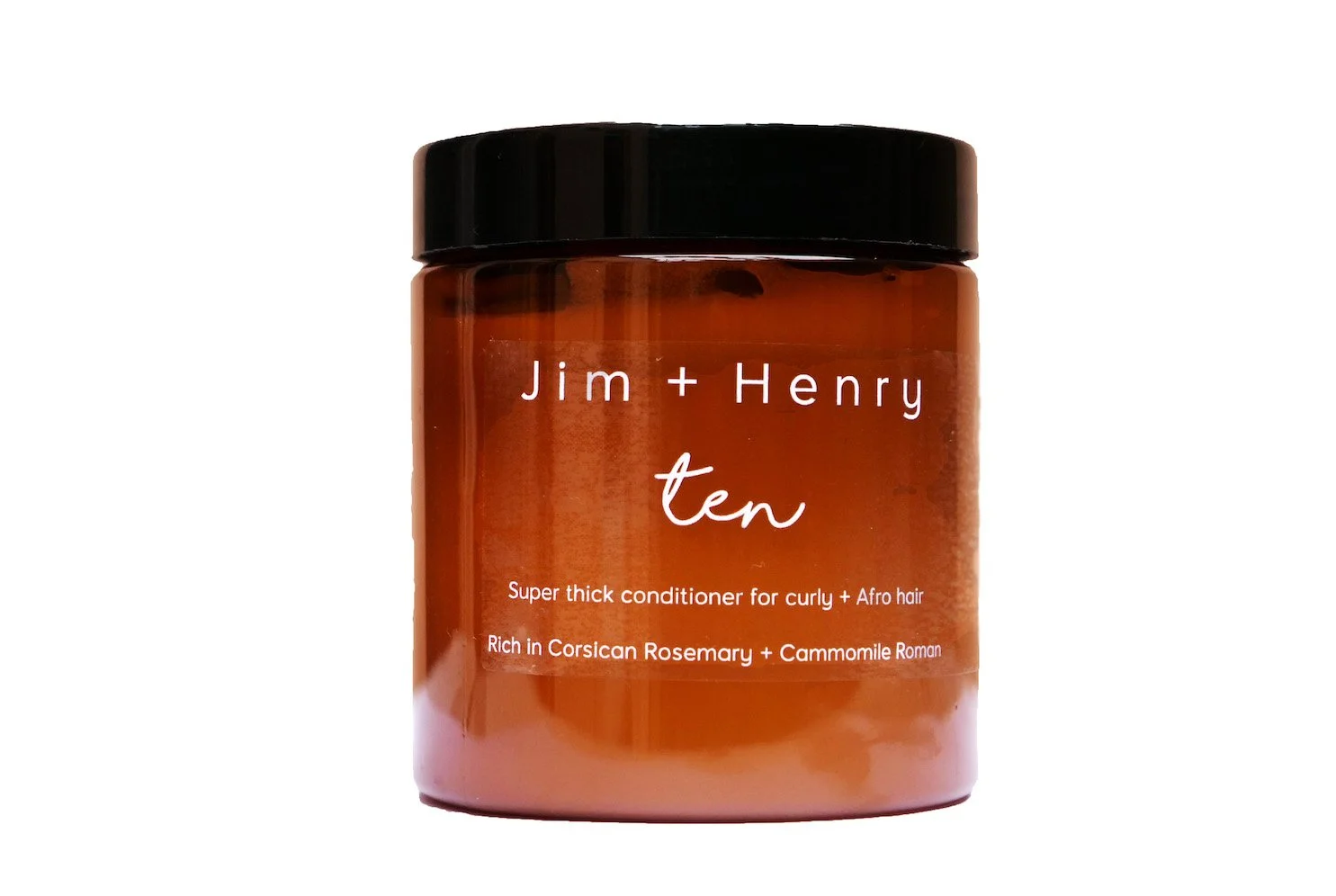Do I need to cowash?
Share
What is a cowash? Or rather, what is cowashing? Why do people do it, is it better than shampoo?

Firstly, cowashing is the idea that you ‘wash’ your hair with hair conditioner because (leave-in, ‘normal’ and deep conditioner) it’s moisturising versus cleansing. Why would anyone do this? Because dry hair doesn’t want to be even drier with shampoo…right? Here lies the rub. Traditional shampoo was considered ‘bad’ for hair way back in 2013/2014 when the natural hair (Afro and curly) community started to talk via social media and learn about ingredients. We all learnt that regular shampoo strips hair. So we stopped using shampoo (even me).
When I was formulating for Jim + Henry I discovered the pH scale, what it means, and why it matters. This is the cool scientific part: water is considered neutral at a pH of 7, but anything above that is alkaline, anything below is acidic. Read the following twice: a high rating on the pH scale is alkaline, a low pH rating is acidic. Every curly hair product will have a rating on the pH scale, which indicates whether it is acidic (moisturising/conditioning), or alkaline (degreasing). This is important because the pH of products will indicate how moisturising/ conditioning they are versus how drying, see: degreasing.
Shampoo is alkaline. Anything alkaline removes grease. That is its function, a necessary one if you want a a healthy scalp. Our scalps contain sweat, bacteria, dust, debris, skin and generally keep our scalps healthy. However after a few workouts, walk-running to work, being out and about, our scalps and curls -just like the skin on our face- need a wash.
Let’s break down the classic ‘cowash’ recipe of hair conditioner, Apple Cider Vinegar (ACV) and bentonite clay.
Hair conditioner is acidic. It injects moisture. It does not clean hair. If it did it would be called shampoo. But it’s called conditioner because it conditions, see: softens, adds malleability and detangling properties to curls.
ACV is acidic. It is produced by a two-step fermentation process where yeast and bacteria are added to the juice from pulverised apples, first converting sugars to alcohol and then to acetic acid, giving the vinegar its characteristic sour taste. This naturally has an exfoliating and moisturising properties when heavily diluted. Used raw with clay is a recipe for hair loss.

Bentonite clay is alkaline
It de-greases, but it does not clean hair. Nor does clay ‘detox’ hair. The only thing clay takes away from your hair is moisture. Additionally, it deposits a concentration of minerals on your hair which can further block moisture getting in.
“Skip the clay masks all together. They don’t do anything for your hair other than clog/coat the strands making it hard for water to penetrate.”
There is an argument, and many articles which claim that when you combine ACV with bentonite clay you get a mildly alkaline hair cleanser. This is simply not true and an ineffective way of cleaning the hair. I know because I’ve done the test and using the Jim + Henry microscope found that there were still bits of clay on my scalp and in my strands. I needed to wash my hair to get these bits out. It was a bit frustrating because I could have just washed my hair with our hair cleanser and shortened my wash day.
If you want to wash your hair do so, with a hair cleanser like our Nine or a shampoo. Your hair will be clean, which is the best place to start for beautiful, healthy curls.
Links:
https://untwistedhair.com/does-clay-clean-hair/
https://www.reddit.com/r/Naturalhair/comments/146608q/bentonite_clay_made_my_hair_hardrough/
